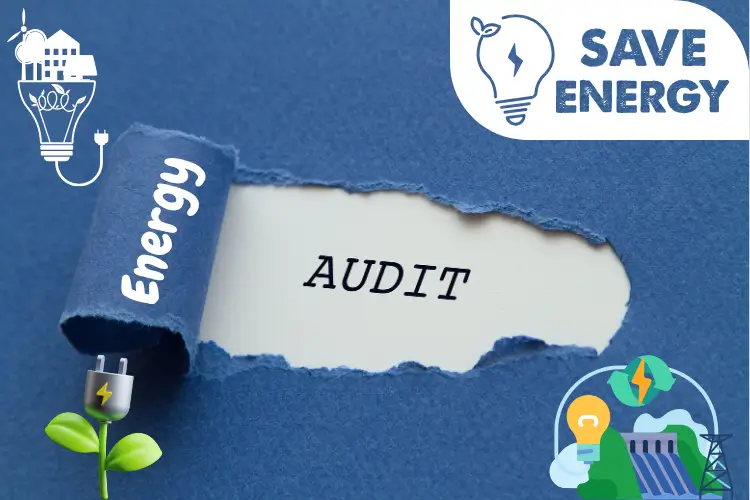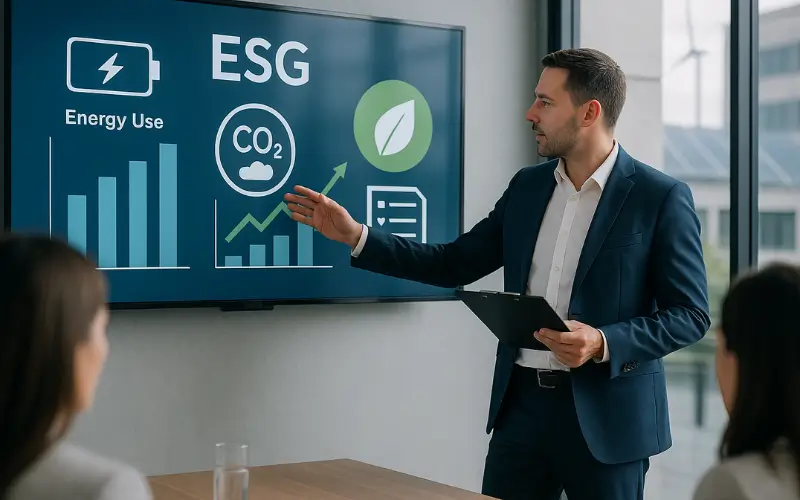In today’s competitive industrial landscape, managing costs and optimizing operations have become critical for factories in Bangladesh. With electricity and fuel prices steadily climbing and global pressure mounting to reduce carbon emissions, energy efficiency is no longer just an option—it’s a necessity. One powerful tool that factories can use to become more energy-efficient is the energy audit.
But what exactly is an energy audit, and why should factory owners in Bangladesh care?
In simple terms, an energy audit is like a health checkup for your factory’s energy usage. It helps you identify where and how energy is being wasted and offers practical solutions to reduce consumption without sacrificing productivity. Whether you’re running a textile mill, a cement plant, or a food processing facility, an energy audit can uncover savings that directly improve your bottom line.
Moreover, with the Government of Bangladesh enforcing energy efficiency regulations and promoting sustainable industrial practices, knowing how to comply with energy audit requirements is more important than ever.
This beginner’s guide is designed specifically for factory owners, managers, and engineers in Bangladesh who want to:
- Understand what an energy audit is
- Learn how the process works
- Discover the benefits it offers
- And find out how to get started with certified energy auditors
What Is an Energy Audit?
An energy audit is a thorough examination of how energy is used within a factory. Think of it as a detailed checkup that identifies where energy is being consumed and, more importantly, where it is being wasted. The main goal is to find opportunities to reduce energy use, lower costs, and improve overall efficiency without affecting production quality or output.
For factories in Bangladesh, which often face rising energy bills and frequent power supply challenges, an energy audit provides critical insights to optimize energy use and maintain competitiveness in the market.
Types of Energy Audits
Energy audits can vary in complexity depending on the level of detail and investment required. The three main types are:
Preliminary (or Walk-Through) Audit:
This is a quick review of the factory’s energy systems. Auditors walk through the site, inspect major equipment, and identify obvious energy wastage areas. It provides a high-level overview and suggests quick, low-cost fixes.
Detailed Energy Audit:
This audit involves in-depth data collection and analysis. Auditors measure energy flows, review operational patterns, and calculate potential savings. It provides a detailed report with recommended energy-saving measures, including estimated costs and payback periods.
Investment-Grade Audit:
This is the most comprehensive audit, intended to support financial decisions for major energy efficiency projects. It includes rigorous data collection, detailed cost-benefit analysis, and project implementation planning. This type of audit helps secure funding or loans by providing confidence in projected savings.
Why Energy Audits Matter for Factories in Bangladesh
Economic Pressures: Factories in Bangladesh face rising energy costs that directly impact their profitability. Electricity tariffs, fuel prices, and maintenance expenses add up, often accounting for a significant portion of operational costs. Energy audits help factory owners identify inefficiencies and implement measures that reduce energy consumption—resulting in substantial cost savings. These savings can then be reinvested in business growth, workforce development, or technology upgrades.
Environmental Impact: Bangladesh is highly vulnerable to climate change, making sustainable industrial practices crucial. Factories are major energy consumers and contributors to greenhouse gas emissions. Conducting energy audits helps factories minimize their carbon footprint by improving energy efficiency and reducing waste. This not only benefits the environment but also aligns factories with national and global sustainability goals.
Competitive Advantage: Energy-efficient factories gain an edge in the market. Many international buyers and partners prefer sourcing from companies committed to sustainability. Moreover, adopting energy efficiency practices prepares factories for stricter future regulations, ensuring smoother compliance and fewer penalties. Ultimately, a strong energy management system enhances brand reputation and opens doors to green financing and incentives.
Regulatory Requirements in Bangladesh
Key Regulatory Authorities
In Bangladesh, energy audits and energy efficiency initiatives are overseen by key government bodies tasked with promoting sustainable energy use:
Sustainable and Renewable Energy Development Authority (SREDA): The primary agency responsible for developing policies and enforcing regulations related to energy efficiency and renewable energy. SREDA manages energy audit certification programs and monitors compliance for designated consumers.
Bangladesh Standards and Testing Institution (BSTI): BSTI supports the implementation of energy standards and testing to ensure factories comply with quality and efficiency benchmarks.
Energy Efficiency and Conservation Rules 2016
To promote efficient energy use, the Government of Bangladesh enacted the Energy Efficiency and Conservation Rules in 2016. These rules require certain large energy consumers, known as Designated Consumers (DCs), to conduct regular energy audits and implement energy-saving measures.
The rules aim to reduce overall national energy demand, curb wastage, and support sustainable industrial growth. Amendments made in 2023 and 2024 have expanded the scope and enforcement mechanisms, making compliance increasingly important.
Who Are Designated Consumers?
Designated Consumers are factories and industries consuming above a specified energy threshold. Common examples include:
- Textile and garment manufacturing units
- Cement factories
- Steel production plants
- Chemical processing units
- Large commercial buildings
These entities are legally obligated to:
- Conduct periodic energy audits by certified auditors.
- Submit audit reports and implement recommended energy-saving measures.
- Maintain records for government review.
Failure to comply can result in fines and legal consequences, underscoring the importance of timely audits.
How to Conduct an Energy Audit: Step-by-Step Breakdown
Conducting an energy audit may seem complex, but breaking it down into clear steps makes the process manageable and effective. Here’s what factory owners and managers can expect:
- Initial Consultation: The auditor meets with factory representatives to understand operations, energy bills, and any concerns. This helps define the scope and goals of the audit.
- Site Survey and Data Collection: The auditor visits the factory to inspect machinery, lighting, HVAC systems, and production processes. They collect data on energy consumption, equipment specifications, and operational patterns.
- Energy Consumption Analysis: Using the collected data, auditors analyze how and where energy is used, identify inefficiencies, and benchmark against industry standards.
- Identify Inefficiencies and Solutions: The audit highlights areas where energy is wasted—such as outdated machineries, poor insulation, or inefficient lighting—and suggests improvements or replacements.
- Final Report with Recommendations: A comprehensive report is prepared, detailing findings, estimated savings, implementation costs, and payback periods.
- Implementation and Monitoring: Factory management acts on the recommendations, implementing energy-saving measures and tracking performance over time.
What Auditors Look For
During an energy audit, particular focus is given to:
- Machinery Efficiency: Checking if motors, compressors, pumps and other equipment’s are operating optimally or need upgrading.
- Lighting Systems: Assessing if lighting is energy-efficient and appropriately used.
- Heating, Ventilation, and Air Conditioning (HVAC): Reviewing HVAC operations for energy savings opportunities.
- Process Flow Optimization: Identifying steps where processes can be streamlined to reduce energy use without compromising quality.
- Waste Heat Recovery: Exploring options to capture and reuse waste heat in production.
Benefits of Energy Audits for Factory Owners
Energy audits offer factory owners a strategic pathway to enhance profitability, operational efficiency, and environmental compliance. By assessing current energy usage patterns, audits uncover inefficiencies that, once addressed, can lead to significant cost reductions. This not only lowers utility bills but also extends equipment life, improves production reliability, and reduces unplanned downtime. Additionally, aligning with energy-saving standards can unlock government incentives such as tax benefits or green financing opportunities. In a market increasingly driven by sustainability, factories that prioritize energy efficiency are better positioned to meet regulatory requirements and attract environmentally conscious customers.
Financial Gains
One of the most immediate benefits of an energy audit is cost savings. By identifying energy waste and inefficiencies, factories can reduce their electricity and fuel bills significantly. Many energy-saving measures have quick payback periods, meaning the initial investment is recovered rapidly through lower energy costs. For example, replacing inefficient machineries or fixing air leaks can lead to noticeable reductions in monthly expenses.
Operational Improvements
Energy audits don’t just save money—they also help improve factory operations. Optimized energy use often leads to:
- Reduced equipment wears and tear, resulting in fewer breakdowns and maintenance costs.
- Improved process reliability and consistent production quality.
- Better scheduling of machinery usage to avoid peak demand charges.
- These operational benefits contribute to smoother factory performance and less downtime.
Government Incentives
Factories that comply with energy efficiency regulations may be eligible for government incentives and recognition. These can include financial rebates, tax breaks, or priority access to green financing. Additionally, companies demonstrating sustainable practices often gain access to international markets and customers who prioritize environmental responsibility.
Certified Energy Auditors in Bangladesh
How to Find a Qualified Auditor
Choosing the right energy auditor is crucial for a successful energy audit. In Bangladesh, audits must be conducted by professionals certified by SREDA (Sustainable and Renewable Energy Development Authority) to ensure credibility and compliance.
Factory owners can find certified auditors through:
- The official SREDA website listing approved energy audit firms and individual auditors.
- Recommendations from industry associations or chambers of commerce.
- Referrals from peers in the same sector.
Training and Certification
Energy auditors in Bangladesh undergo specialized training programs conducted by SREDA in collaboration with international organizations such as the Energy Conservation Center Japan (ECCJ) and UNDP. These programs cover:
- Energy audit methodologies.
- National regulations and standards.
- Use of audit tools and software.
- Reporting and compliance requirements.
Certified auditors possess the knowledge and skills to provide actionable recommendations tailored to factory operations.
Leading Energy Audit Firms in Bangladesh
Some prominent firms offering energy audit services include:
- Greenbud BD
- FBSC Energy Solutions
- Eco Energy Services
- Veritas Engineering
These firms serve various industrial sectors, including textiles, cement, steel, and food processing, providing end-to-end energy audit solutions from initial assessment to implementation support.
Real-World Examples
Understanding how energy audits have helped factories in Bangladesh can inspire you to take action. Here are some real-life case studies highlighting the impact of energy audits across different industries. We are not sharing the company name here because they do not agree to share the information publicly.
Textile Factory in Narayanganj
A mid-sized textile factory conducted a detailed energy audit that revealed significant energy losses due to inefficient lighting and outdated machineries. By replacing conventional bulbs with LED lighting and upgrading to energy-efficient machineries, the factory reduced its electricity consumption by 15%, saving approximately BDT 2 million annually. The investment paid back within 18 months.
Cement Plant in Chattogram
An investment-grade audit at a cement plant identified heat recovery opportunities and improvements in kiln operation. Implementing these recommendations led to a 12% reduction in fuel consumption, cutting down costs and lowering greenhouse gas emissions. The plant also qualified for a government energy efficiency grant, easing project financing.
Food Processing Unit in Gazipur
This factory faced frequent equipment breakdowns due to overuse and poor maintenance. The energy audit recommended a maintenance schedule aligned with energy consumption patterns, optimizing machinery runtime. Resultantly, the factory improved operational uptime by 20% and reduced its energy bill by 10%.
These examples show that energy audits are not just about compliance—they’re practical tools for improving efficiency, cutting costs, and enhancing factory operations.
Common Challenges & How to Overcome Them
Limited Awareness: Many factory owners and managers in Bangladesh are still unfamiliar with the benefits and processes of energy audits. This lack of awareness can delay adoption. To overcome this, industry associations, government bodies like SREDA, and NGOs conduct training workshops and awareness campaigns. Factories can also benefit by attending seminars or consulting with certified auditors who explain the long-term gains of audits.
Cost Concerns: Upfront costs for energy audits and implementing recommendations may seem daunting, especially for small and medium factories. However, many energy-saving measures require little or no investment and still yield quick returns. Moreover, government incentives, low-interest loans, and grants are increasingly available to support energy efficiency projects. Viewing energy audits as investments rather than expenses can shift the perspective positively.
Resistance to Change: Sometimes, factory staff and management resist changing established operational routines, fearing disruption or uncertainty. Overcoming this challenge requires leadership commitment and clear communication about the benefits of energy efficiency. Involving employees in the audit process and training can build ownership and ease transitions toward more sustainable practices.
The Future of Energy Audits in Bangladesh
The energy landscape in Bangladesh is rapidly evolving, with energy audits becoming an integral part of the country’s industrial growth and sustainability goals.
Growing Government Focus: The government is continuously strengthening policies and enforcement around energy efficiency. Energy audits are expected to become mandatory for a broader range of industries, with stricter reporting and compliance mechanisms. This shift reflects Bangladesh’s commitment to its Nationally Determined Contributions (NDCs) under the Paris Agreement.
Integration with Smart Technologies: Advancements in smart energy monitoring and IoT (Internet of Things) devices are transforming how factories track and manage energy use. Real-time data collection allows for more dynamic energy audits, continuous monitoring, and quicker identification of inefficiencies. Factories adopting these technologies will have a competitive advantage.
Increasing Demand for Sustainability: Global markets increasingly demand transparency and sustainability from suppliers. Factories that proactively conduct energy audits and implement efficiency measures will be better positioned to meet these requirements, attract eco-conscious buyers, and access green financing.
Conclusion
Energy audits are a smart, practical way for factories in Bangladesh to reduce energy costs, improve operations, and contribute to a greener future. Whether you run a large textile mill or a small manufacturing unit, understanding your factory’s energy use is the first step toward greater efficiency and sustainability.
With rising energy prices and increasing government regulations, conducting regular energy audits is not just about compliance—it’s a strategic move that enhances competitiveness and long-term profitability.
If you haven’t started yet, now is the time to engage a certified energy auditor, explore your options, and take control of your factory’s energy future.
Frequently Asked Questions (FAQs)
1. What is an energy audit and how does it work?
An energy audit is a detailed review of your factory’s energy use that identifies waste and suggests improvements to reduce consumption and costs.
2. Is it mandatory for factories in Bangladesh to conduct energy audits?
Yes, designated consumers under the Energy Efficiency and Conservation Rules 2016 must conduct periodic energy audits and submit reports to SREDA.
3. How much does an energy audit cost in Bangladesh?
Costs vary depending on factory size and audit type, but many audits pay for themselves quickly through energy savings.
4. Who conducts energy audits in the country?
Certified auditors approved by SREDA conduct energy audits to ensure accuracy and compliance.
5. What documents are needed for an energy audit?
Typically, energy bills, equipment inventories, maintenance records, and production data are required.
6. How long does the energy audit process take?
Depending on factory size and audit depth, it can range from a few days (preliminary audit) to several weeks (detailed audit).
7. Can energy audits really save money for small factories?
Absolutely. Many energy-saving opportunities involve low or no cost changes that reduce bills and improve efficiency.
Written by: Israt Jahan




